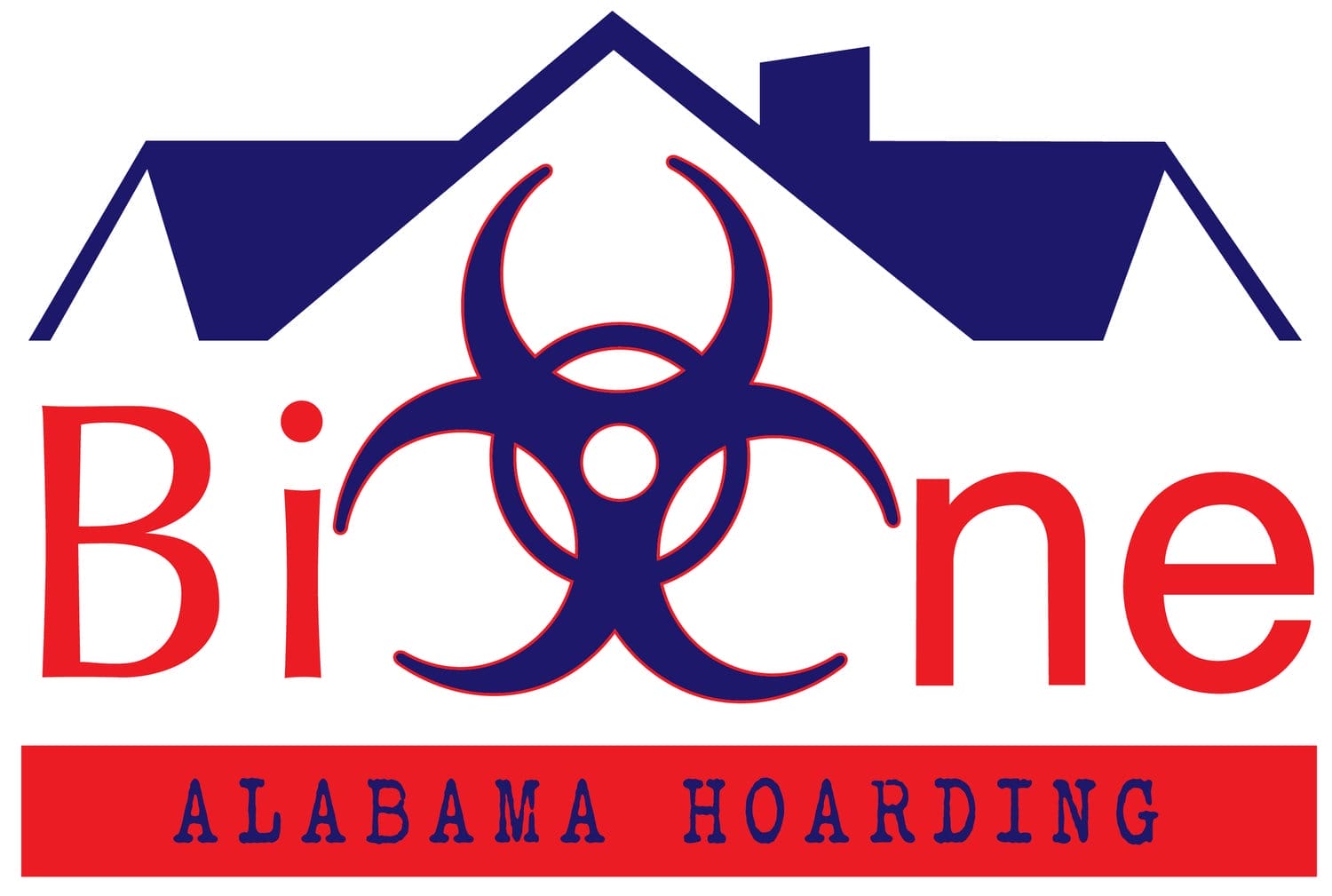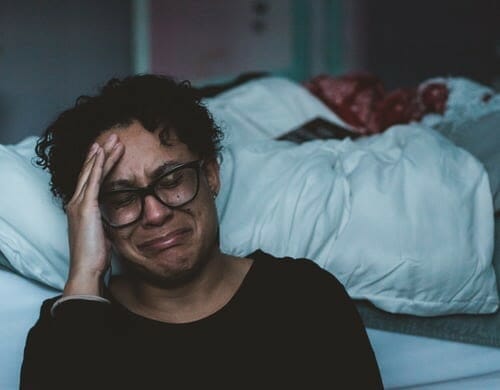We spend a big part of our lives at work. It’s where we talk with others, solve problems, and try our best to do a good job. But sometimes, people show up to work while quietly struggling inside. Behind smiles and small talk, many are dealing with stress, sadness, or feelings they don’t know how to share.
Mental health struggles are more common than most people realize. And when no one talks about them, the silence can be harmful.
This Mental Health Awareness Month, Bio-One of Alabama wants to talk about something that doesn’t get enough attention. We want to help more people understand how important it is to support mental health at work. Because when someone feels safe enough to open up, it might not just help them feel better. It could actually save their life.

Mental health challenges don’t stop when someone walks into work. If a person is feeling anxious, depressed, or overwhelmed at home, those feelings usually come with them to the office, the warehouse, or the job site.
Many people do their best to keep going. They show up, smile, and try to focus. But on the inside, they might be hurting. They could be dealing with grief, trauma, stress, or other serious mental health struggles, and no one around them even knows.
Why don’t more people speak up?
Because they’re afraid.
So instead, they stay silent. And that silence can make things worse.
At Bio-One, we’ve seen what happens when people suffer in silence. That’s why we believe it’s important to create spaces, especially at work, where people feel safe talking about what they’re going through.
It’s not always easy to tell when someone is having a hard time. At work, many people try to hide what they’re feeling so they can “push through” the day. But there are often small signs that can let us know when a coworker or friend might be struggling with their mental health.
Here are a few things to watch for:
These signs might not seem like much at first. But together, they can show that someone is not okay.
Even if you’re not sure, it’s always a good idea to check in. A simple “Hey, I noticed you’ve seemed a little off. Want to talk?” can let them know they’re not alone.
Sometimes, just being seen and heard can help someone take the next step toward getting support.

When people feel like they can't talk about their mental health, it can make everything worse. Silence often leads to shame. And shame can make someone feel even more alone.
At work, this silence can feel extra heavy. Someone might be struggling every day, but if they believe no one will understand or they’ll be judged, they may never speak up. Instead of asking for help, they keep everything inside.
That kind of isolation can be dangerous.
At Bio-One, we’ve responded to tragic calls where someone lost their life to suicide. It doesn’t just happen at home. We’ve been called to clean up offices, warehouses, and other workspaces where a person felt there was no way out.
Many of those lives might have been saved if they had felt safe enough to speak up.
This is why it matters to talk about mental health at work. Because when we make space for honest conversations, we make it easier for people to get the help they need, before it’s too late.
You don’t have to be a manager or part of the HR department to make a difference. Every person in a workplace can help create a space where mental health is talked about openly and kindly.
Here are some simple ways to start:
These small actions help build trust. And trust creates a workplace where people feel more supported, connected, and safe to be honest about what they need.

Leaders have a powerful role in shaping workplace culture. When managers talk openly about mental health and support their teams, it sends a clear message: it’s okay to speak up, and it’s okay to need help.
Here are a few ways leaders can make a real difference:
When leadership takes mental health seriously, it sets the tone for the entire workplace. It helps build a culture of care, and that can save lives.
Talking about mental health at work might seem small, but it can have a huge impact. It’s not just a kind thing to do. It’s a real form of suicide prevention.
When people feel like they can be honest about how they’re doing, they’re more likely to get the help they need. A caring conversation at work could be the moment that helps someone keep going.
Here’s what open, supportive workplaces can offer:
These things may seem simple, but they can make a life-changing difference.
Every conversation matters. Every person who chooses to listen, share, or care helps make the workplace a safer space for everyone.
At Bio-One of Alabama, we’re called in after some of life’s hardest moments. We clean up after tragedy, but we would much rather help prevent that tragedy from ever happening.
This Mental Health Awareness Month, we’re encouraging every workplace to take a step toward being more open, more caring, and more supportive. Whether you’re an employee, a manager, or a business owner, your words and actions matter.
One conversation can help someone feel seen.
One kind question can remind someone they are not alone.
And one safe space at work could be the reason someone chooses to stay.
Let’s work together to make sure no one suffers in silence.
Let’s make it easier to talk about mental health.
Let’s make our workplaces places where people feel supported every day.
Because sometimes, a simple conversation really can save a life.
Because many people are silently struggling, when mental health is ignored in the workplace, it can lead to isolation, shame, and even tragedy. Open conversations create safer, more supportive environments where people feel seen and are more likely to ask for help.
Look for changes such as:
Check in with them gently. Try saying, “Hey, I’ve noticed you don’t seem like yourself lately. Want to talk?” Just showing that you care can help them feel less alone.
Yes. Everyone can help create a more supportive workplace. You can lead by example, check in with others, and talk openly about your own stress or mental health experiences.
Many people are afraid of being judged, looking weak, or losing their job. That fear leads to silence, and silence can make mental health struggles worse.
Managers can:
Yes. When someone feels safe and supported, they are more likely to speak up and get help before reaching a crisis point. Honest conversations can be life-saving.
Silence can lead to shame and isolation. Bio-One has responded to suicide scenes in workplaces where people may have never felt safe enough to talk about what they were going through. That’s why early conversations matter.
Start small. Talk about stress, burnout, therapy, or self-care in everyday conversations. The more we speak openly, the less scary and “taboo” the topic becomes.
Ask someone how they’re really doing—and mean it. That one question could help them feel seen, heard, and valued. It’s a simple step that could make a big difference.

First and foremost, hoarding cleanup is the single most common job we perform for our customers. We are passionate about helping hoarders and their families, and we stand by our work as being the most professional in all of Alabama.
Unlike standard junk removal companies, Bio-One of Alabama is more specific: we help hoarders and their families not only rid their homes of unwanted or discarded items, but we meticulously go through items to salvage what needs to be kept, recover any and all valuables, and then deep clean the home at the end.
Whether the situation is mild hoarding/pack-rat situation, or a property that is biohazardous - Bio-One of Alabama can help.
We also offer financing on our hoarding cleanup services, which is a big help to those on a budget.
All of our technicians are local Alabamians, and our company is family-owned. Our Birmingham location serves Birmingham, Tuscaloosa, Cullman, Anniston and everywhere in between. We also have a Huntsville location and Montgomery location.
Call Bio-One of Alabama today for your free hoarding cleanup estimate: (205) 937-1708

Suicide is often reduced to statistics to give people a general sense of the scale of the problem. But statistics can’t possibly illustrate the toll of each individual loss.
If you have lost a loved one to suicide, you are intimately familiar with the devastating and complex impact felt by surviving friends and family.
Your loved one’s death may have left you feeling lost and confused, unsure of where to turn for answers. As you and those around you struggle to come to terms with the loss, it can be difficult to know what to do or how to feel.
There is no right answer for how you should be feeling following the suicide of someone close to you. Grief is complex, and it’s rare that any two people will experience it in the same way. Just know that whatever you’re feeling, it’s okay.
Accepting your grief and allowing yourself to feel it is easier said than done, but there are things that can help. Here are a few things that may help in your grieving process.

The most common question that survivors of suicide come to is “Why did this happen?”
After a loved one’s suicide it can be easy in your search for answers to begin blaming yourself.
You may wonder what you could have done to prevent this outcome or you might feel guilt over signs you may have missed. You may find yourself wondering why your support wasn’t enough to keep them around.
The truth of the matter is that suicide is complicated with no singular explanation for why it happens. However, a framing that may help you understand is this: At the end of all things, your loved one died of an illness.
Most, if not all, victims of suicide suffer from an acute mental illness that contributed to the decision to end their life.
Mental illness can severely distort a person’s perception of their importance in the world and the care of those around them. Your loved one did not choose to become ill, and they would not have chosen to end their life had their illness not been pushing them to do so.
Mental illness is treatable just as cancer is treatable—but some people still succumb to their cancer even with treatment, while others recover and go on to live for years.
You do not need to wonder why your efforts weren’t enough or what you could have done better. In the end, succumbing to their illness requires no more blame than if they had died from a heart attack.
Understanding this will not make the loss hurt any less, but it may help to reconcile some of the confusion so you can grieve more peacefully.

There is no timetable on grief, so it’s impossible to say how long it will take for your life to begin to feel normal again.
There are, however, some things you can do to aid in your recovery process and ensure you are on the best possible path toward healing:
At the heart of all of these is connection with other people. You are not required or expected to do this alone. While you may occasionally need some time to yourself to process, it is support and connection with others that will be the most help in getting you through this difficult time.

After a traumatic loss, the idea of moving on can be scary. If you’re struggling with the transition, volunteering your time to a cause dedicated to preventing suicide and supporting survivors like you can help to ease some of the guilt and fear.
There may still be bumpy roads ahead. Grief is complicated and can come in waves. However, as you start feeling a little more whole you will be able to give yourself permission to begin living again.

There are varied reasons people hang on to things they don’t need based on their circumstances or deeper-lying struggles. A cluttered home—even one that would qualify as a Level 5 situation—doesn’t stem from laziness or lack of willpower.
More often than not, a cluttered home is the result of a difficult-to-control situation, which is part of normal life.
What’s the source of your clutter? Following, are a few factors that may be contributing to your at-home clutter:

Having children can bring an abundance of joy, but also plenty of clutter.
Baby gear that is only used for a short period of time, rapidly changing clothes sizes, and piles of toys accumulate quickly.
It doesn’t end with the baby phase, though. As all guardians know, older kids and teens bring their own messes into the home.
Food-related messes combined with sleep deprivation can make it difficult to keep up with housework.
With children leaving clutter everywhere and food-related messes needing immediate care, it can be difficult to keep up with housework. Especially when you consider the sleep deprivation that also comes with kids.
Between art and science projects on the counter and smelly gym bags and laundry
left around the house, things can get (or stay!) messy.
It doesn’t help that children aren’t well-known for cleaning up after themselves!

As adults age, they may struggle to keep up with their housework.
Think of all the reaching and bending over. Consider all the hard scrubbing. With health issues, simple cleaning tasks take much longer to accomplish, if it can still be done.
Decreased mobility and increased health issues can make cleaning overwhelming or even impossible.
In addition, it can be difficult to let go of possessions accumulated over a lifetime.
Anxiety can make it difficult to throw away possessions.
People with anxiety may hold on to items in excess in case of a feared emergency or indecision about what to do with items.
Finding the motivation to clean and declutter is often a struggle for someone suffering from depression.
The stress of an out-of-control home situation (whether it’s actually out of control
or simply perceived to be) can create a negative feedback loop.
For example, maybe you’re struggling with depression and lack the motivation to do the dishes. This means the dishes quickly pile up and within a week or two every surface in your kitchen could be covered in dirty dishes.
Now, you’re facing an overwhelming mess that can make you feel even worse—piling on exhaustion, guilt, and shame—and making you even less likely to find the motivation to clean up.
This cycle can leave those struggling with depression feeling more overwhelmed and less able to approach their home situation.
Individuals with ADHD often have intense, passionate interests and may accumulate items related to that interest. In addition, it can be difficult for a person with ADHD to create and stay focused on a plan for a big cleaning project. Anytime there are multiple steps involved, it’s easy for people with ADHD to get distracted.
Obsessive-compulsive disorder is characterized by obsessive, intrusive thoughts and compulsive behaviors. People with OCD sometimes deal with anxieties and emergencies by compulsively buying items. They may have obsessions about running out of essential items or a buying ritual that is difficult to break out of.

Trauma can be a trigger for accumulating clutter. If someone grew up without:
They may feel driven to hold onto things rather than throw them away when they are no longer needed. Research shows that childhood emotional abuse and physical neglect in particular predict higher levels of hoarding symptoms.
People who have experienced loss may also accumulate possessions to soothe the ache of missing their loved one. Buying new things triggers a brief dopamine high, bringing temporary emotional relief.

If you grew up in a home where clutter was common, you are more likely to show these behaviors yourself. You may have a genetic disposition toward it through related diagnoses like anxiety or depression. You may also be more used to an environment where clutter, mess, and even the higher levels of hoarding are the norm.

No matter the reason clutter starts, it’s normal to feel overwhelmed and stressed by the situation. Home maintenance is a big task under any conditions. Certain factors can make the situation feel impossible such as:
Stress can lead to disorganized homes, and disorganized homes can increase stress. Natalie Christine Dattilo, PhD, clinical health psychologist and instructor of psychiatry at Harvard Medical School, calls it a chicken-or-egg dilemma.

“Recent studies have shown that clutter in our homes is associated with higher cortisol levels [our stress hormone], but it’s still unclear which comes first,” says Dattilo.
“Is it that when we are under stress, our ability to maintain a well-organized home becomes impaired? Or when our home is in disarray, does that make us feel more stressed, overwhelmed, and anxious?”
Regardless of the root of the issue, there is a way out. Resources are available to help you deal with your home situation. Bio-One can help! Our services can help ease your stress. For more information on how we can help you with your clutter call (205) 937-1708.

Bio-One of Alabama is your go-to source for all help with Hoarding Cleanup. Located locally in Birmingham, Bio-One offers Hoarding Cleanup Services throughout all of Jefferson County, as well as Hoover, Tuscaloosa, Jasper, Anniston, Clanton, Cullman - and with our two other local offices in Huntsville and Montgomery, we offer Hoarding Cleanup Services throughout the State of Alabama.
Unlike other "junk removal companies" who just come to your home and simply throw everything away, Bio-One takes a more comprehensive, compassionate approach. When you hire Bio-One to help solve your Hoarding problems, this is what you will expect:
Call Bio-One today for a free, no obligation estimate for Hoarding Cleanup at (205) 937-1708.

Suicide Cleanup in Cullman, Warrior, Decatur, Jasper and All Throughout Alabama
Cleaning up after a loved one commits suicide is perhaps the most emotionally daunting task imaginable. Nobody is prepared for that level of trauma, and that is where services like Bio-One come in to lend a helping hand.
With three local offices in Huntsville, Birmingham and Montgomery, and serving all Cullman County, Blount County, Walker County and all Alabama counties, Bio-One is Cullman's Crime Scene & Trauma Cleaning Specialist. We specialize in the the cleanup of suicide, homicide, unattended death/decomposition, trauma, bodily fluids and other services. We offer 24/7 service to help you when you need someone immediately, as well as lend you an ear and emotional support if that is something you need.
Very often we get called by families who have attempted to clean up the aftermath of a suicide themselves - we highly recommend to call a professional, and not do it yourself. Not only to save yourself from the emotional trauma, but because it's unsafe, and unnecessary.
It's unnecessary because homeowner's insurance covers this type of cleanup - in fact, we rarely encounter a case where it isn't covered by insurance. Bio-One initiates the claims process for you, and does not take advantage of the insurance company - we are actually affordable. It's also unsafe because of bloodborne pathogens, improper PPE when cleaning, unsafe working conditions among many other reasons.
When a suicide or any biohazardous situation occurs in a home, auto or anywhere where you need us, call Bio-One today at 256-677-6111. We cover all of Cullman, Jasper, Russellville, Arab, Oneonta, Gardendale, Birmingham, Huntsville, Montgomery, Tuscaloosa, Anniston and everywhere in Alabama.
Bio-One: 256-677-6111
If you or someone you know may be considering suicide, contact the National Suicide Prevention Lifeline at 1-800-273-8255 (en español: 1-888-628-9454; deaf and hard of hearing: dial 711, then 1-800-273-8255) or the Crisis Text Line by texting HOME to 741741.

According to the American Psychiatric Association, suicide is the 10th leading cause of death in the United States and the second leading cause of death (after accidents) for people aged 10 to 34. And according the CDC, published reports from 2020 suggest that the pandemic has had a negative effect on children’s mental health.
“Beginning in April 2020, the proportion of children’s mental health–related ED visits among all pediatric ED visits increased and remained elevated through October. Compared with 2019, the proportion of mental health–related visits for children aged 5–11 and 12–17 years increased approximately 24%. and 31%, respectively.”
Researchers have yet to link recent suicides to the pandemic since 2020 suicide data is not yet available. But on the ground, there's growing concern.
The February 2021 NPR article “Child Psychiatrists Warn That The Pandemic May Be Driving Up Kids' Suicide Risk” explores possible correlation. Takeaways include:
For ways to help kids at risk, NPR encourages readers to read Part 2 of their story, “Make Space, Listen, Offer Hope: How To Help A Child At Risk Of Suicide”.
Suicide Prevention Resources
Survivors of Suicide – What to Do Next
The loss of a loved one by suicide can be a deeply painful and traumatizing experience; however, it’s important to know that everyone experiences suicide loss in their own way. As you begin the process of healing, consider reading the American Foundation for Suicide Prevention’s guide for to talk to others about what happened and identify ways to take care of yourself.
Additionally, if you have lost someone to suicide, there may be a cleanup required. There is no need for family or friends of the loved one to be further traumatized or overwhelmed with trying to figure out how to clean the impacted area. Bio-One is here for you. Learn more about Bio-One’s suicide remediation services.
If you or someone you know may be considering suicide, contact the National Suicide Prevention Lifeline at 1-800-273-8255 (en español: 1-888-628-9454; deaf and hard of hearing: dial 711, then 1-800-273-8255) or the Crisis Text Line by texting HOME to 741741.